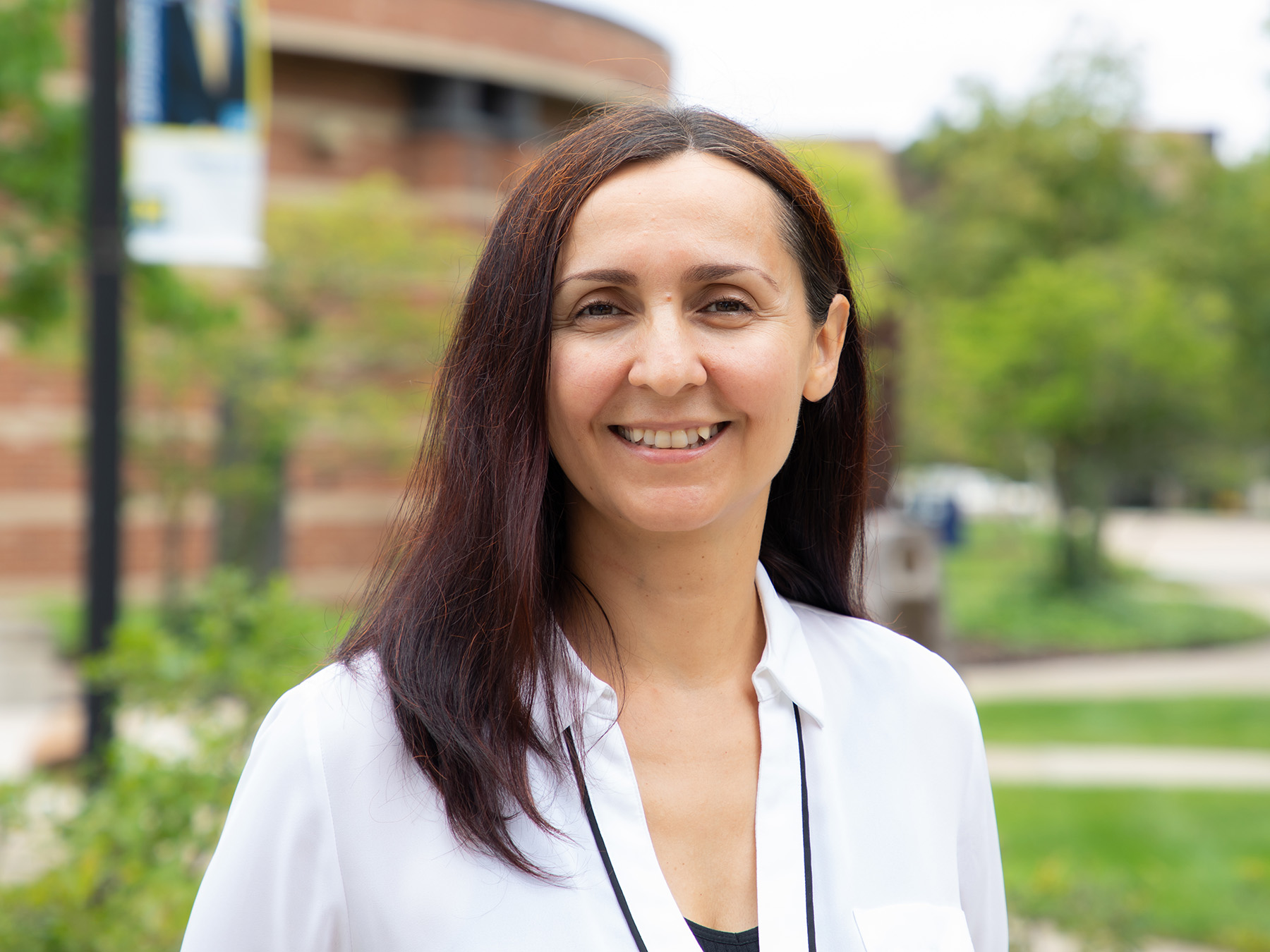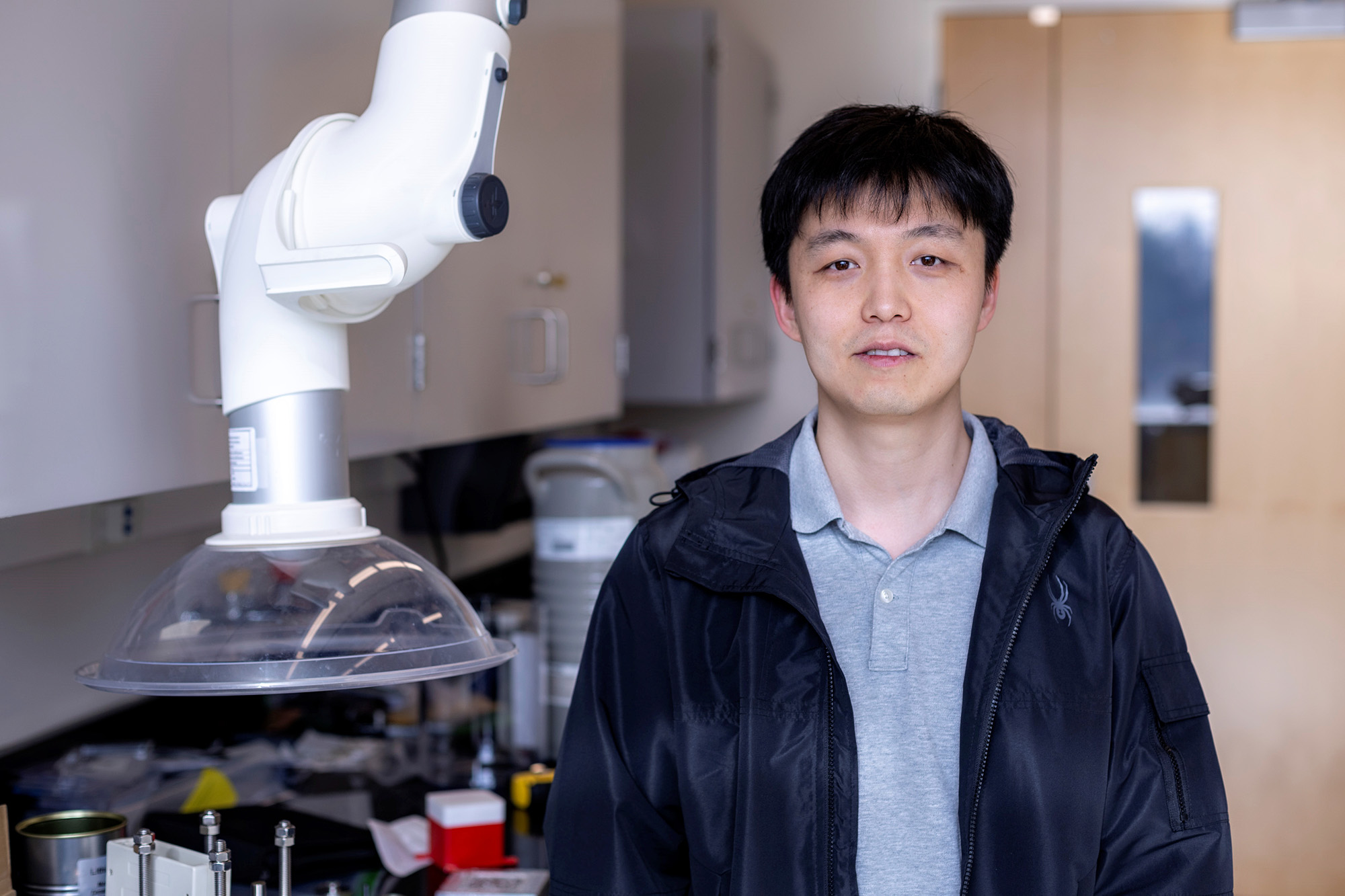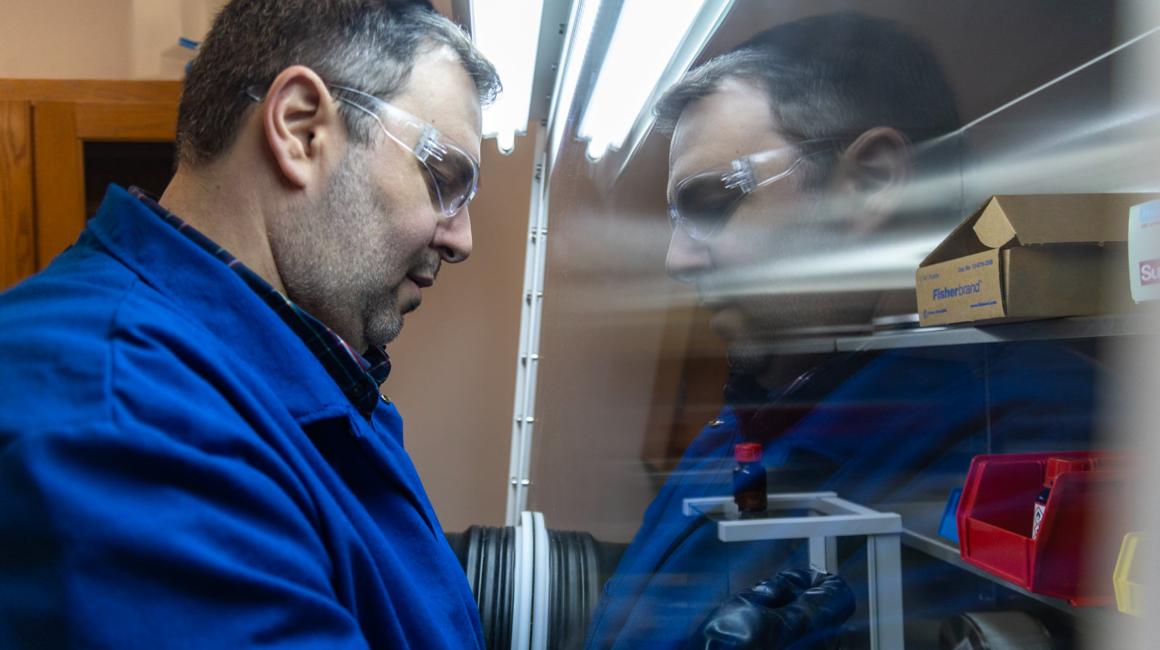
When students complete a doctoral degree, they’re at the top of one of the highest mountains in higher education. But just like undergraduates facing post-graduation anxiety, postdoctoral life can represent a fraught time for recent PhD graduates. For those interested in long-term careers in academia, they’re likely embarking on job searches for highly competitive faculty positions. And if someone wants to work in the private sector, employers in at least some industries seem to balk at hiring highly trained applicants with little industry experience — simply because they generally command higher salaries than those with less-advanced degrees.

Photo by Julianne Lindsey
But there is another option for recent PhD grads: working as a postdoctoral researcher. As the name suggests, this is a research position at a university, typically lasting one to three years, that someone takes after they finish their PhD. UM-Dearborn Director of Research Development Vessela Vassileva-Clarke says this may be an attractive route for a number of reasons. For example, if a person isn’t quite sure whether they want to go into academia or industry, a postdoc position can simply buy someone a little time to figure it out, while they continue to stay active and build a research portfolio. And for those who are definitely interested in faculty positions, doing a postdoc can help someone burnish their CV if, say, they weren't able to publish as much as they’d liked during their PhD program. In addition, depending on the arrangement between the researcher and their faculty advisor, Vassileva-Clarke says a postdoc position might give someone a chance to log some teaching experience — or even pursue an externally funded grant for a research project that they co-lead with a faculty member. Moreover, a postdoc gives recent PhD grads experiences in other core parts of academic life that they may not have gotten in their doctoral programs, like proposal writing.
UM-Dearborn currently has about a dozen postdoctoral researchers working on campus, the vast majority of whom are working with faculty in the College of Engineering and Computer Science. Rongheng Li, who finished his PhD at UM-Dearborn under Mechanical Engineering Professor Ben Q. Li in 2019, says the opportunity to do a postdoc actually grew organically out of his doctoral research experience. His research focused on some of the advanced mathematical challenges associated with the use of nanoparticles in photovoltaic systems, which is seen as a promising way of improving output from solar panels. But then one day, toward the end of his PhD program, Li found himself chatting with Associate Professor of Electrical and Computer Engineering Xuan (Joe) Zhou. The two of them discovered that a lot of the same mathematical methods Li was using in the area of photovoltaics might have interesting applications for battery research, which is Zhou’s specialty. Now, as a postdoc, Li is working on several of Zhou’s funded projects, including one exploring how well used EV batteries perform when used in a grid-tied storage system.
“A lot of my prior work has been very theoretical, so working with Dr. Zhou is giving me a chance to learn in a more experimental setting,” Li says. “I’m learning new instrumentation, and I got to visit the clean room in Ann Arbor, where they are working on a variety of projects. So I think it’s going to be quite valuable for me to get this hands-on experience, including with batteries, which is a technology that’s so important for the future.” Another big payoff for Li: He’s getting to work closely with the research team’s industry partners, which is helping him see how private sector projects are managed and how their teams work. After his postdoc, he thinks he’ll likely be applying for faculty jobs in the United States. But he’s not opposed to a position in the private sector, and he thinks the practical experience he’s logging during his postdoc will make him a more competitive candidate.

Gajendra Singh Chawda followed a different path to UM-Dearborn for his postdoc. Chawda finished his PhD in electrical engineering at the Indian Institute of Technology in early 2022 and took a postdoctoral research position there after graduation. But he really wanted to get experience at an American university, and when he saw a posting for a postdoctoral research position working with Electrical and Computer Engineering Professor Wencong Su, he felt like it would be a great fit. Chawda’s work focuses on the complexities of integrating renewable energy into the electric grid and renewable energy access for economically disadvantaged communities — which happen to be two of Su’s research interests. Currently, Chawda is working on some foundational research on high-frequency AC microgrids — a technology that many researchers and industry experts see as vital for modernizing the electric grid so it can accommodate more renewable energy and battery storage. Chawda says one of the other big perks of the position is that he gets to work as a lecturer — the first time he’s had the opportunity to teach students outside of a lab setting.
Moreover, it’s also been an exciting time for his family. His wife and daughter accompanied him for this adventure in the United States, and Chawda says his daughter loves her school in Dearborn Heights. “She’s always so excited to come home and show me what she’s done at school,” he says. “The American education system is a lot different. In India, I would say it’s more focused on books and, here, students seem to do a lot of activities. For example, she came home the other day and was so proud to show me the house that she built.” Like Li, Chawda says he’s hoping to find a faculty position at an American university after his postdoc and thinks having that experience on his CV will boost his chances of success.
Aside from the professional benefits to postdoctoral researchers, Vassileva-Clarke says there are huge benefits for their faculty supervisors. “The impact is tremendous. Postdoctoral researchers are just so helpful to faculty members because they are already trained and highly skilled, so they can help a faculty member with so many things that are so time consuming, like proposal writing, hands-on research in the lab, or research training and mentoring of students,” Vassileva-Clarke says. “PhD students are super helpful too, but you still have to train them, advise them, and then some of them find out research is not their calling. So a postdoc really extends the bandwidth of the faculty member.”

Photo by Annie Barker
Assistant Professor of Organic Chemistry Christos Constantinides can vouch for that. As an early-career faculty member working towards tenure, he was excited to recently land a large grant from the U.S. Department of Energy supporting research that could improve nuclear magnetic resonance-based technologies like MRI. But with a demanding course load teaching organic chemistry to undergraduates, he frankly needs help with the very labor-intensive, advanced chemistry that the DOE-funded project demands. A postdoc was really his only option, since some of the work is too advanced for the undergraduate students he’ll also be hiring for the project, and his department doesn’t have a PhD program he can use to recruit doctoral students.
When he posted the position, Constantinides was surprised to get 65 applicants. He finds that pretty encouraging given that UM-Dearborn just recently earned an R2 designation and he’s still in the process of making his name in the field. But as someone who did a three-year postdoc himself, which he says is a prerequisite to getting a tenure-track position in his discipline, Constantinides gets the logic. “You can go work for a big name at a big university, and if everything goes well, you’ll get your publications and, most importantly, get a letter of recommendation from your mentor. You’re basically going to get a job at that point. But if you don’t get the letter, it can be the kiss of death,” Constantinides says. “That big name — you’re going to see that person maybe one or two hours a week. And, frankly, they don’t need the publications. Me, though? I need the papers. So if you come work with me, you’re going to get more support, more mentorship and hopefully more publications. It’s kind of a gamble either way, but for some people, this postdoc opportunity is going to feel like a good bet.”
###
Story by Lou Blouin


